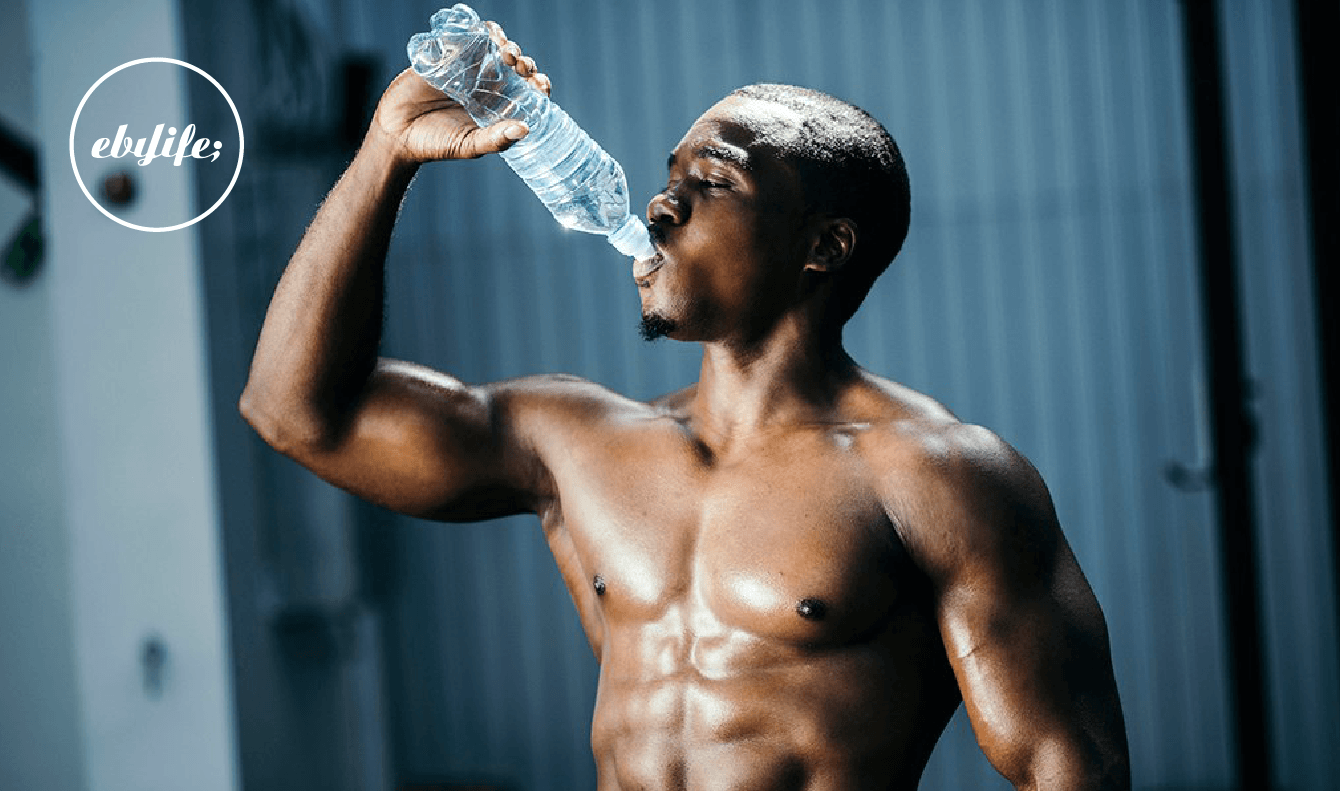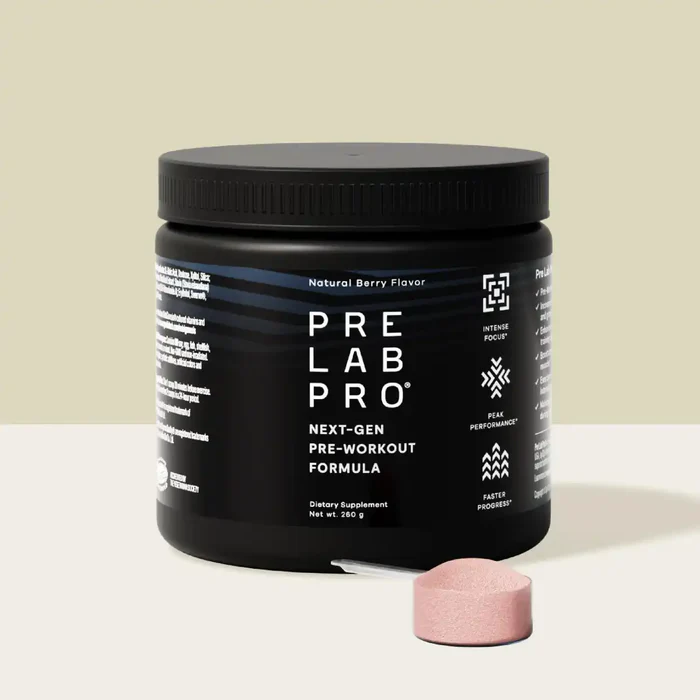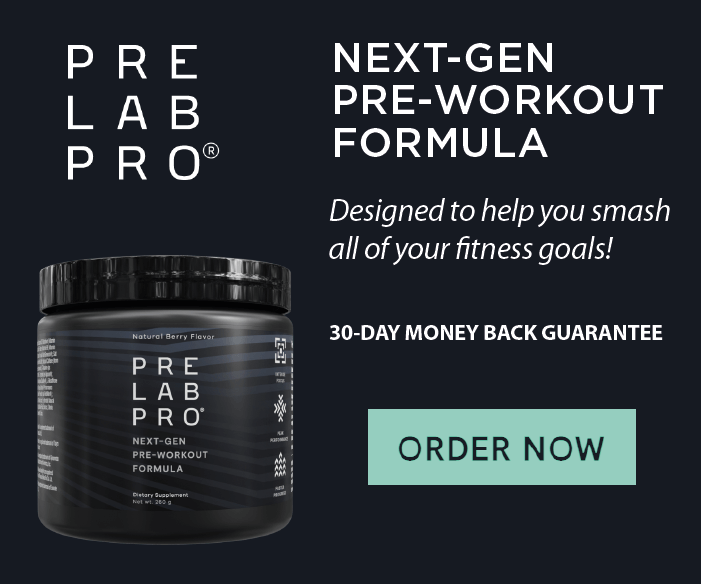Water: The Miracle Chemical That Helps Build Muscle
Written by Martin Ebner, Head PT and sports nutrition specialist at Ebylife
Is zero a number? One can argue, no it is not because it means "nothing" and you can't divide with it. Are mushrooms plants? They don't have chlorophyll, after all. Is black a color when it is actually the total absence of color? Of course, the answer is that, yes, zero is a number, mushrooms are plants, and black is a color, because how else would you categorize them?
But what about water? Is it a chemical? Of course, it is! It has a molecular weight (18.0) and a Material Safety Data Sheet (MSDS). Its hazard rating, in case you're wondering, is zero (if that's even a number!). We get so used to hearing about chemical pollutants IN our water that we forget that water IS a chemical. The next time you take a nice long drink of cool water, think to yourself, "That is one tasty chemical!".
Water is also a very quirky chemical. Flip through a Chemistry textbook and you'll quickly see that water is the exception to almost every rule. For one thing, solid water (ice) floats. That's true for virtually no other substances on Earth. If ice sank in water, lakes would freeze from the bottom up. Besides putting a damper on ice skating on lakes and ponds, they would freeze solid, killing anything living in them. Instead, ice floats and forms a thermal barrier for the fish and amphibians that live in lakes and ponds.
A Miracle Drug?
Is water also a drug? Most sources call water a nutrient, but can it also be considered a drug? Well, your doctor can prescribe IV fluids, so there's that. But most sources consider a drug to be a substance that alters the mind or body, usually in a positive way. So by most accounts, water is not a drug. However, if you've ever been extremely dehydrated, you know that a sip of water can alter your mind and body in a very positive way! And it is technically possible to overdose on water. A rare condition called hyponatremia occurs if someone drinks so much water that it dangerously dilutes their electrolytes, especially sodium.
Our bodies are about 75% water. Since a gallon of water weighs about eight pounds, a 200 lb person is strolling around with about 18 gallons of water! Without proper hydration, your cells can physically shrink. This shrinkage can actually decrease the size of your second favorite organ, your brain. Without proper water intake, a host of other unpleasant side effects can occur.
Minor dehydration can lead to:
Dry mouth
Dizziness
Lethargy
Irritability
Headache
Weakness
Cramping
Major dehydration can lead to:
Anhidrosis (hypohidrosis)or a lack of sweating
Sunken eyes
Shriveled and dry skin
Low blood pressure
Increased heart rate
Fever
Vomiting
Delirium
Seizures
Unconsciousness
Ways We Lose Water
It's difficult to believe how much water we lose through perspiration. It becomes more obvious when we are working hard and/or when the temperature is warm. However, although we may not be visibly perspiring, our sweat glands are helping us regulate our body temperature.
Even when we sleep, we lose lots of water through sweating. A friend reports being on a camping trip when one of his companions decided to sleep in his sleeping bag inside a giant industrial plastic bag. He wanted to stay dry from atmospheric moisture, but it had the opposite of the intended effect. In the morning, this fellow's bag was not only saturated, but water poured out of the plastic bag when he inverted it. If we lose that much while sleeping, think about the amount of water we sweat out during physical activity!
Other ways we lose water include:
Breathing: Our breath contains vapor that you can see on a cold day or when you breathe on a mirror.
Urinating/defecating: A normal activity.
Vomiting/diarrhea: Hopefully NOT a normal activity! Generally caused by illness, you're probably not working out anyway if you are vomiting or have diarrhea.
Keep in mind that when exercising, we sweat a lot! One's rate of water loss depends on a whole bunch of factors. But in general, we sweat between 1 - 1.5 liters of water during an hour of vigorous exercise. A liter and a half of water weighs about three pounds!
Hydration: How Much Is Enough?
Things like one's body weight, muscle mass, lifestyle, climate, diet, and physical activity are all factors in how much one should hydrate. We get a lot of water from the foods we eat and also, naturally, from the liquids we drink. A glass of milk or juice is still mostly water so it definitely counts towards your daily total. According to an article from The Mayo Clinic, Water: How much should you drink every day? On average enough water is:
Men: 3.7 liters (about a gallon)
Women: 2.7 liters (about three quarts)
Keep in mind that this is for an "average" man and woman and includes water from food. How much water (including juice, milk, etc) you need personally will depend on the factors mentioned above. Also, some argument exists about whether coffee, tea, and soft drinks should be counted towards the total. These are diuretics which means that they increase urine output. Alcohol is a major diuretic and may lead to dehydration. The jury is still out about beer. It is a diuretic as the bouncer at any bar can attest to, but it is also loaded with carbohydrates which can lead to fluid retention. (It's probably best not to drink beer when you're thirsty!)
If you are very curious, you can use this handy hydration calculator to determine what your water consumption rate should be. However, the old adage about drinking eight glasses of water a day is not just an old husband's tale. Many experts recommend drinking eight 8-oz glasses of water daily. That is about two liters of drinking water in total. If you actually keep track for a period of time, you'll see that between what you eat and how much water you drink, you can easily get your required 2.7 to 3.7 liters of water every day.
I highly recommend setting up a system for yourself to keep track of how much water you drink. It's easy to lose track of how many glasses of water you've had today! Instead, fill a two-liter bottle of water in the morning and make sure it's gone by the end of the day.
Pro tip: it's best to have the bulk of your water on board before very late in the evening, say 6:00 or 7:00 pm. That way you're less likely to need night-time trips to the bathroom!
How Often Should I Drink Water?
When we drink water, some is immediately absorbed by the mouth and tongue while some more is absorbed by the stomach. In fact, within five minutes of taking a sip of water, some of it appears in the bloodstream. However, most is absorbed by the small intestine so the bulk of your sip requires many minutes to get absorbed and then more time to circulate around your body, and then even more time for cells to absorb it. Think about how long it must take for water to replenish the synovial fluid, the cushioning liquid found in one's joints.
Depending on your physical activity level, it's best to drink moderate amounts frequently throughout the day. When you're going through your busy day, it's easy to lose track and then try to catch up by chugging. And if you’re exercising, lots of small sips every few minutes is recommended, so keep that water bottle handy! Hikers and endurance athletes know about the advantage of carrying a Hydrapak. By sipping from the tube every several minutes, one can easily get enough water.
Thirst means STOP!
When you feel thirsty, you're dehydrated. By the time you feel thirsty, your body has lost about 1% of its water. This means a 150 lb person is down about a half-liter of water and a 220 lb person is shy about three-quarters of a liter. Think about how much that is. Take a look at your favorite water bottle. If it's a one-liter bottle, you're missing half or three-quarters of that volume. "So if I feel thirsty, I can just chug a bunch of water and be good to go?" Not so fast Sparky! As I said in the section above, water takes time to be absorbed.
When you actually feel thirsty, it's a sign to take a hydration break. Remember that even minor dehydration can lead to stumbles and injuries.
See: 10 tips to help you recover faster between workouts
Signs You're Drinking Enough Water
According to the Bladder and Bowel Community, it's normal to urinate between six and seven times a day. If you're on a heavy-duty workout schedule, be sure that you are going often and that your urine is relatively clear. If your trips to the toilet are less frequent and your urine is dark, you're probably not getting enough hydration. Keep in mind though, that B vitamins have a tendency to turn urine a bright yellow.
You don't feel thirsty
Mouth not dry
Plenty of pee breaks (not caused by alcohol or other diuretics)
Urine is clear to slightly yellow-tinged
No muscle cramps
No headaches
You feel energized
You don't feel dizzy, irritable, or lethargic
Does Drinking Water Help Build Muscle?
Well, not drinking water definitely hinders muscle growth, especially if one gets dizzy and falls. You won't be building muscle while mending a broken bone! But the answer is yes, water, the miracle chemical, definitely helps build muscle. Experts agree that hydrating is a crucial ingredient for successful bodybuilding, weight loss (fat loss), and building body mass.
For one thing, hydration affects how well your blood flows. Blood is made mostly of water, so less water means less blood. Low blood volume means low blood pressure which means that nutrients are not being carried effectively to your muscle cells. It also means that the byproducts of muscle breakdown and metabolism are not carried away as effectively which can lead to a build-up of toxins like ammonia and hydrogen ions. Accumulation of ammonia and hydrogen ions after strenuous bouts of physical activity is thought to slow muscle contractions and decrease muscle tension development. Lactic acid can also build up and cause problems. A Healthline article 6 Ways to Get Rid of Lactic Acid in the Muscles, lists "hydration" as the number one way to cut down on muscle cramps.
According to the US National Institute of Health's study about cellular hydration, there is evidence that cellular hydration is important to protein synthesis. I mentioned shrinkage earlier and it turns out that protein degradation is affected by muscle cells swelling and shrinking. "The cellular hydration state is mainly determined by the activity of ion and substrate transport systems in the plasma membrane. Hormones, substrates, and oxidative stress can change the cellular hydration state within minutes, thereby affecting protein turnover."
See: Complete Protein Supplements Guide: Everything you need to know about protein for fitness goals
Weight lifting builds muscle strength by creating small tears in the muscle fibers and then "filling in the cracks" with new muscle cells. Without proper hydration, the amino acids and nutrients needed for protein synthesis are less available. More importantly, water is directly involved in the chemistry of protein synthesis. The building blocks of protein chains, the amino acids, are knitted together using the hydrogen and oxygen atoms from water. An article in the journal Nutrition and Metabolism can tell you more. You can also read about amino acids in my blog: Lysine, Tyrosine and Beans Oh My! Amino Acids and How To Get 'Em.
Using our muscles requires energy and our muscles store energy in the form of glycogen, a polysaccharide. For each molecule of glycogen a muscle cell uses, three water molecules are also consumed. Without proper hydration, glycogen can not be used effectively to fuel the muscles. When muscles run out of gas, so to speak, it slows down any muscle gains.
Electrolytes
Adequate levels of electrolytes, including magnesium, potassium, calcium, sodium, and bicarbonate, are beneficial to reducing or preventing muscle cramping. They play a key role in normal skeletal muscle contraction and play a role in decreasing muscle fatigue. When you flex your muscles, your body needs calcium in order to produce a contraction. When you relax your muscles, it requires magnesium instead. Sufficient levels of the electrolytes are required to drive nutrient transport and waste removal across the cell membrane. Insufficient electrolyte intake can lead to imbalances, causing muscle cramps and/or muscle fatigue.
In general, for shorter workout activities, drinking water to stay hydrated is usually sufficient. However, for longer, more intense workouts, especially those lasting more than an hour and/or in warm weather, adding electrolytes to your water bottle or Hydrapak is recommended. A serious case of electrolyte imbalance can cause symptoms similar to dehydration: nausea, vomiting, muscle weakness, muscle cramping, muscle twitching, overall fatigue, labored breathing, "pins and needles", and confusion.
There are many electrolyte supplements and sports drinks on the market, including two of my favourites, Transparent Labs Hydrate 60SV and Ultima Hydrating Electrolyte. Powder.
Or you can make your own using a recipe from Healthline.com that makes about a liter of lemon/lime sports drink:
1/4 tsp of salt
1/4 cup (60 ml) of lemon juice
1/4 cup (60 ml) of lime juice
1 1/2 cups (360 ml) of unsweetened coconut water
2 cups (480 ml) of cold water
Please remember that good electrolyte balance begins with proper nutrition. The most difficult electrolyte to keep up on is potassium. Leafy green veggies and bananas are excellent sources of potassium. We need a significant amount of potassium throughout the day, about 3,500 mg. One banana has about 450 mg, about 12% of your daily need. This means you would need to eat eight bananas per day if they were your only source of potassium. An old husband's tale exists about too many bananas being unhealthy. Fortunately, Catherine Collins, a dietitian at St George's Hospital in London, has dispelled this rumor saying, "...it would be impossible to overdose on bananas. You would probably need around 400 bananas a day to build up the kind of potassium levels that would cause your heart to stop beating..." Well THAT'S a relief!
In case eating eight bananas a day doesn't appeal to you, here are some other choices!
Leafy greens like kale and spinach
Oranges, cantaloupe, honeydew, apricots, grapefruit
Dried fruits, such as prunes, raisins, and dates
Beans and legumes
Broccoli
Potatoes
Sweet potatoes
Mushrooms
Peas
Cucumbers
Zucchini
Pumpkins
Fruit Juices: Orange, Tomato, Prune, and Grapefruit
Check out my blog regarding the nutrition content of fruits and veggies for more info.
A Quick Word About Hyponatremia
It's bad! Hyponatremia, sometimes called "water intoxication," is a potentially life-threatening condition that occurs when one's sodium levels drop to a dangerously low level. It's relatively rare, but it can occur if an athlete fails to use an electrolyte-replacement drink during vigorous exercise lasting longer than an hour, especially at high temperatures. Pounding plain water while sweating profusely can cause a dangerous electrolyte imbalance, triggering seizures, coma, and even death. Initial symptoms are similar to dehydration and include confusion, disorientation, vomiting, and muscle weakness. Keep aware of how much you're sweating and your hydration level, as well as your electrolyte intake. Having a salty snack during a break is usually enough to ward off hyponatremia.
Take Aways
Water is one interesting chemical!
Drink eight 8 oz glasses (250mls) of water a day; about two liters.
Drink water frequently throughout the day; don't wait until you feel thirsty.
Serious thirst means STOP! Take a hydration break.
Minor dehydration can affect athletic performance.
Major dehydration can MAJORLY affect athletic performance (and everything else)!
Bodybuilders need to drink a lot of water.
Water keeps the synovial fluid hydrated which helps protect joints while exercising.
Water is directly involved in protein synthesis.
Electrolytes improve hydration and muscle performance.
Electrolytes prevent hyponatremia, which is very unpleasant.
Eat lots of potassium-rich foods, like Kale and bananas.
It's probably impossible to overdose on bananas!



